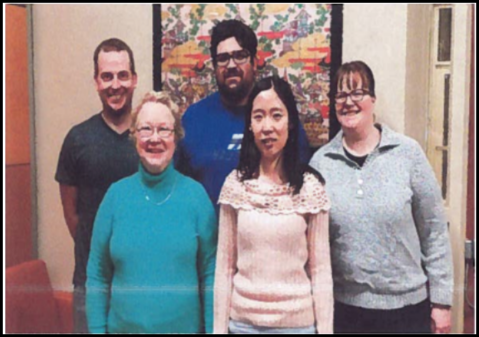2015 – Michigan State University Co-Integrate Series
Session Title: Challenges in Studying Opportunities to Learn Algebra and to Teach Algebra in Secondary Teacher Education Programs.
Description: For more than a century, algebra has served as both a foundation for higher mathematics and a gatekeeper for entrance to careers and college course work. The majority of states now require completion of Algebra I or Algebra II for high school graduation; many students now begin their study of algebra in Grade 8. In the past three decades, scholars and professional organizations have also made recommendations for changes in what algebra should be taught and how it should be taught. Mandates about who should take algebra and when, and debates about the algebra curriculum and instruction have raised questions about what algebra future teachers should know and how they should teach algebra. A natural question is “How and to what extent are pre-service teachers being prepared to teach algebra in this changing landscape?”
Presenters: Sharon L. Senk, Jeff Craig, Jia He, Leo Medel, and Eryn Stehr
Presentation Time and Date: January 30, 2015 at 3:30 PM
Citation: Senk, S., Craig, J., He, J. Medel, L., & Stehr, E.M. (2015, January). Challenges in Studying Opportunities to Learn Algebra and to Teach Algebra in Secondary Teacher Education Programs. Session presented as part of the Co-Integrate Seminar Series sponsored by Collaborative Research in Education, Assessment and Teaching Environments (CREATE) for STEM Institute at Michigan State University. East Lansing, MI. ()
2015 – Joint Mathematics Meetings
Session Title: Teacher as Learner: Reflections from Preservice Mathematics Teachers
Description: This session describes pre-service teachers’ (PSTs’) reflections on learning algebra at the end of their teacher education programs. Data comes from two focus group interviews at each of four purposefully chosen secondary mathematics teacher education programs and we report on emergent themes identified through qualitative analysis. For example, reasoning and proof were emphasized across universities, but PSTs reported that the practices played different roles at different universities. In some cases, proof was used as an assessment and PSTs were supposed to reproduce memorized proofs. In other cases, reasoning and proof were considered tools for learning, granting access to important mathematical truths. This dichotomy about reasoning and proof led us to consider university characteristics. Only two of the case study sites had mathematics educators involved in their mathematics departments. PSTs from these sites more often connected content from their mathematics courses to K-12 learning and commented about taking ownership of their mathematical knowledge. This session presents ideas about teaching mathematics to PSTs and fostering collaboration between mathematics educators and mathematicians.
Presenters: Andrew Hoffman, Jia He, and Leonard Medel
Presentation Time and Date: Sunday, January 11th, 8:40 AM – 9:00 AM
Citation: Hoffman, A., He, J., & Medel, L. (2015, January). Teacher as learner: Reflections from pre-service mathematics teachers. Presented at the Joint Mathematics Meetings. San Antonio, TX. (link to presentation slides)
